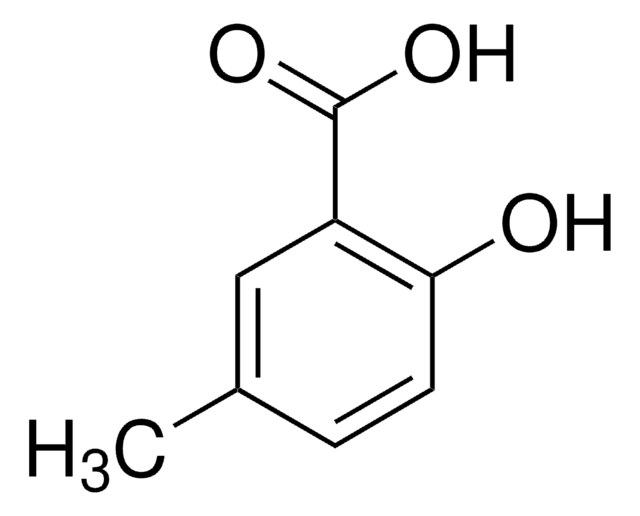175978
Benzene-D6
99 atom % D
Synonym(s):
Hexadeuterobenzene
About This Item
Recommended Products
isotopic purity
99 atom % D
Quality Level
Assay
≥99.00%
form
liquid
expl. lim.
0.34-6.3 % (lit.)
technique(s)
NMR: suitable
impurities
≤0.0100% water
water
refractive index
n20/D 1.497 (lit.)
bp
79.1 °C/760 mmHg (lit.)
mp
6.8 °C (lit.)
density
0.950 g/mL at 25 °C (lit.)
mass shift
M+6
SMILES string
[2H]c1c([2H])c([2H])c([2H])c([2H])c1[2H]
InChI
1S/C6H6/c1-2-4-6-5-3-1/h1-6H/i1D,2D,3D,4D,5D,6D
InChI key
UHOVQNZJYSORNB-MZWXYZOWSA-N
Looking for similar products? Visit Product Comparison Guide
General description
Application
- 2H NMR study of dynamics of benzene-d6 interacting with humic and fulvic acids.: This study examines the interactions of benzene-d6 with humic and fulvic acids using deuterium NMR, highlighting the compound′s utility in probing the structure and dynamics of natural organic matter in environmental contexts (Nanny et al., 2011).
- Separation of benzene and deuterated benzenes by reversed-phase and recycle liquid chromatography using monolithic capillary columns.: This research demonstrates the effective separation of benzene-d6 from its isotopologues using advanced chromatographic techniques, contributing to methodologies in analytical chemistry for precise isotopic analysis (Lim et al., 2004).
- Structure-function relationships in high-density docosylsilane bonded stationary phases by Raman spectroscopy and comparison to octadecylsilane bonded stationary phases: effects of aromatic compounds.: The interaction of benzene-d6 with various stationary phases is analyzed, providing insights into the molecular interactions that influence chromatographic separations (Liao & Pemberton, 2008).
- Reaction of molecular oxygen with a Pd(II)-hydride to produce a Pd(II)-hydroperoxide: experimental evidence for an HX-reductive-elimination pathway.: This study uses benzene-d6 in experimental setups to elucidate mechanisms of oxygen interaction with Pd(II)-hydride complexes, significant in catalytic oxidation processes (Konnick & Stahl, 2008).
- Quantitative analysis of benzene by selected ion monitoring/gas chromatography/mass spectrometry.: Benzene-d6 is used as an internal standard to develop a highly precise method for quantifying benzene, crucial for environmental monitoring and industrial hygiene (Gruenke et al., 1986).
Recommended products
accessory
Signal Word
Danger
Hazard Statements
Precautionary Statements
Hazard Classifications
Aquatic Chronic 3 - Asp. Tox. 1 - Carc. 1A - Eye Irrit. 2 - Flam. Liq. 2 - Muta. 1B - Skin Irrit. 2 - STOT RE 1
Target Organs
Blood
Storage Class Code
3 - Flammable liquids
WGK
WGK 3
Flash Point(F)
12.2 °F - closed cup
Flash Point(C)
-11 °C - closed cup
Personal Protective Equipment
Choose from one of the most recent versions:
Already Own This Product?
Find documentation for the products that you have recently purchased in the Document Library.
Customers Also Viewed
Our team of scientists has experience in all areas of research including Life Science, Material Science, Chemical Synthesis, Chromatography, Analytical and many others.
Contact Technical Service











